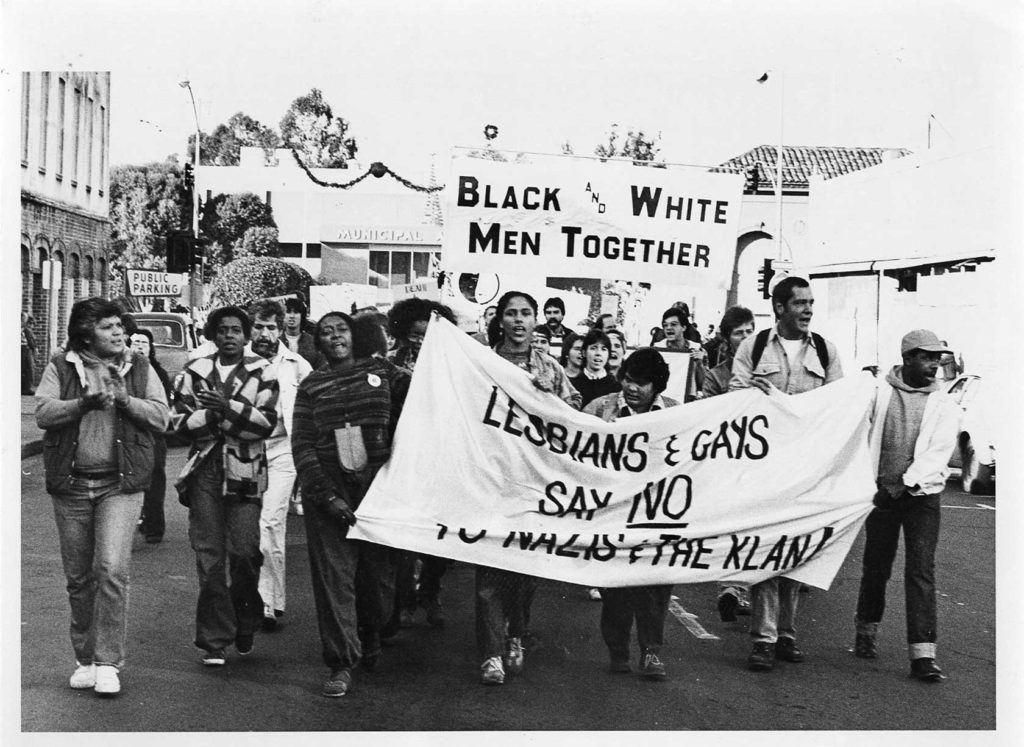Black, queer and part of Boston’s history
The History Project builds a timeline of the city’s Black LGBTQ community

Inspired by the racial reckonings of 2020, The History Project, New England’s largest archives of LGBTQ materials, is working to flesh out its collection related to Black queer history. Funded by a Mass Humanities Digital Capacity Grant and spearheaded by Community Curator Fellow Micha Broadnax and Community Connector slandie prinston, Documenting Black Queer Boston will provide physical and digital records for the community to experience and build on.
“There’s a few African proverbs that I’ve kept close to me while I’ve been doing this work, and one of them is around the story of ‘the hunt will glorify the hunter, so the lion needs their own historian,’” says Broadnax. “Queerness in general is written out, and it’s a history we’re still trying to recover.”
One of the major efforts of the project is to update and elevate the existing timeline of Black queer history that begins in 1782 and spans to 1992. The current timeline was updated in 2011 and Broadnax hopes now to incorporate events close to the hearts of the contemporary Black queer community.
Notable historical points on the timeline include the founding of the Combahee River Collective, a group working on African American women’s issues and a thriving Black queer night club that operated in Roxbury’s Nubian Square in the 1970s. More contemporary items to join the archive will include information about Boston Poet Laureate Porsha Olayiwola and beloved local artist Oompa.
The History Project has physical archives in the Back Bay and community members are encouraged to contribute physical documents, photographs and correspondence to that facility. Enhancing the digital archive is also part of Documenting Black Queer Boston’s goal, in order to increase accessibility to this history. Earlier this month, the group collaborated with LGBT Elders of Color to host a storytelling event. That event was recorded and will become part of the archive,
preserving that oral history.
“Creating this resource, or something like a timeline, although it could seem like a static document, a reference point, it’s a marking of history, it’s a marking of Black queer accomplishments, thriving and living,” says Broadnax. “I see that as a wonderful resource for folks when they’re looking for themselves.”
Documenting Black Queer Boston is a primarily volunteer-run effort. Community members are encouraged to get involved and to keep the organization accountable, whether that’s by joining a committee and meeting biweekly to help run the project or by contributing pieces of their own history.
Broadnax says, “It’s so important that Black queer folks aren’t erased from the narrative, from the contributions, from the joy that is being in the City of Boston.”








